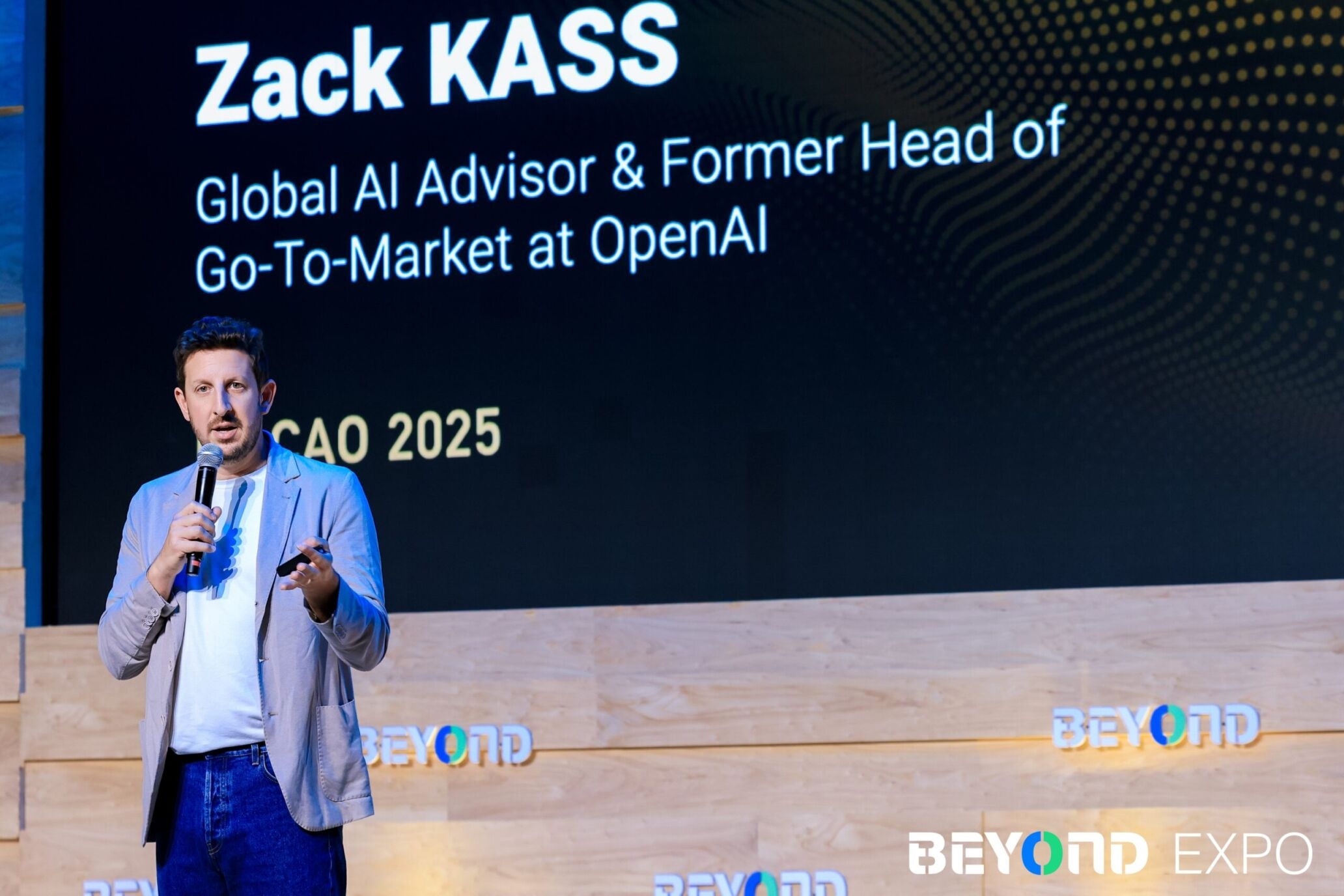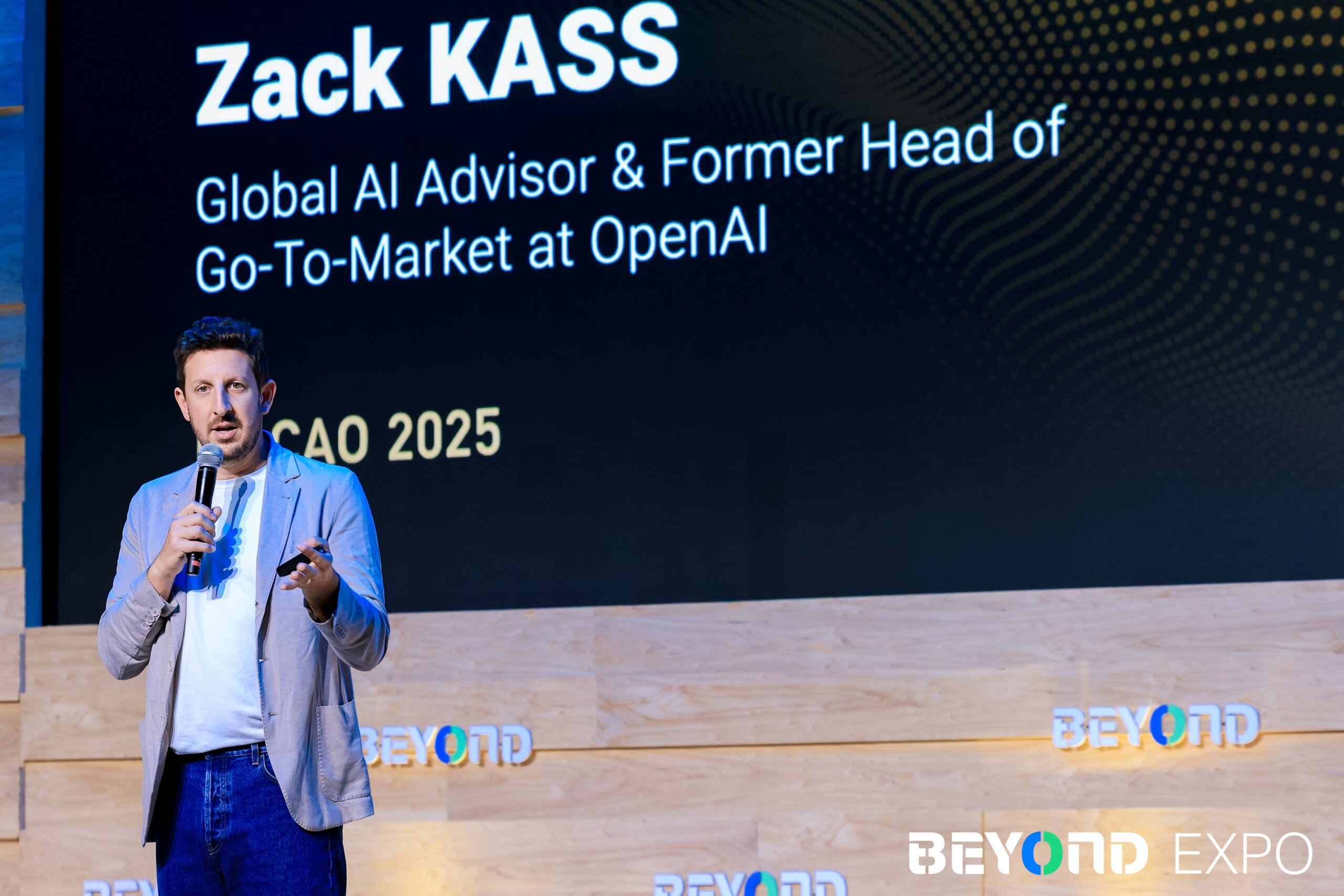BEYOND Expo 2025: Former OpenAI executive Zack Kass on rediscovering what it means to be human in the age of AI

In the coming decade, the most profound impact of Artificial Intelligence on society may not lie in its technical capabilities, but in how it compels us to reexamine what it truly means to be human, a leading industry expert said during a session at the BEYOND Expo 2025.
“We are entering a new era of self-discovery, driven by AI,” Zack Kass, Global AI Advisor and Former Head of Go-To-Market at OpenAI, said at the expo’s Founder Talk forum.

Here are some insights from Kass’s session: The Human Advantage in the Age of AI
Over the past few years, AI has advanced at an astonishing pace. Kass emphasized, the real world-changing moment isn’t the leap in performance—it’s in how we choose to use it. OpenAI’s chatbot tool ChatGPT is a perfect example.
Although large models existed before, it wasn’t until ChatGPT that the general public began engaging with AI in natural, human-like language. This marked a shift from the “augmentation phase,” where AI simply boosted human productivity, to the “agent phase,” where AI started executing tasks on behalf of people. The next phase of AI, Kass explained, will be the rise of autonomous AI agents that operate across web pages, applications, and databases, becoming true digital assistants.
From basic statistical models to today’s general-purpose systems capable of mathematical reasoning, long-form generation, and multimodal tasks, AI is rapidly advancing toward general intelligence—and that, too, at a minimal cost.
Kass said when GPT-4 was first launched, the cost was $60 per million tokens, compared to just $1.40 today. Tokens are pieces of words that AI models use to process and understand language. The exponential drop in price indicates that AI is becoming an infrastructure like water, electricity, or the internet—available on demand.
This shift is already reshaping the internet. Today, websites are designed for human consumption. In the near future, content will increasingly be structured for AI to read and parse—raw text, metadata, and Application Programming Interface that enables software applications to communicate and exchange data. While most information flow will occur between machines, humans will interact with AI via natural language, visuals, and perhaps even brain-computer interfaces.
Kass introduced a powerful terminology for this emerging reality: “Unmetered Intelligence”—a world where intelligence is infinitely accessible, without being tracked or billed per unit. Just as we no longer count every megabyte we use online, we won’t worry about how many tokens or compute cycles AI consumes. Intelligence will be ambient—always available, everywhere, embedded in the fabric of daily life.
This also means we must fundamentally rethink what makes humans unique, he added. When intelligence and knowledge can be copied, scaled, and shared effortlessly, what remains distinctly human?
Kass offered a deeply personal answer: He is about to become a father.
“AI won’t make me a better dad. My child needs love, attention, presence—not a smarter parent,” Kass said, adding that AI may simulate emotion or provide advice, but it cannot replicate human warmth, empathy, or moral judgment.
Education, therefore, must evolve, according to Kass. Instead of merely imparting knowledge or vocational skills, the focus will shift to values, critical thinking, creativity, and emotional intelligence. Meanwhile, leadership will no longer be about having the most answers, but about unlocking the potential in others.
“No one wants AI to tell jokes for them or to make them brave, those are human qualities,” Kass said.
During his remarks, Kass also had a message for young people: Don’t treat university like a shortcut to wealth. Study what you’re passionate and curious about. Learn how to think and learn. That will outlast any hot major that may be obsolete in five years.
As he wrapped up, Kass urged his audience to tell better stories. He added that the narrative around AI doesn’t have to be dominated by fear or dystopia. The world may be on the cusp of curing cancer, fixing education, and addressing global inequality. But for that future to materialize, he said that we must believe in it, build toward it, and share those possibilities with others.
AI will change everything, but some things will always remain human, Kass concluded.
#HumanityAndAI #FutureOfIntelligence #EmotionalIntelligence #AIEthics #DigitalHumanism
- Art
- Causes
- Crafts
- Dance
- Drinks
- Film
- Fitness
- Food
- Juegos
- Gardening
- Health
- Home
- Literature
- Music
- Networking
- Other
- Party
- Religion
- Shopping
- Sports
- Theater
- Wellness


